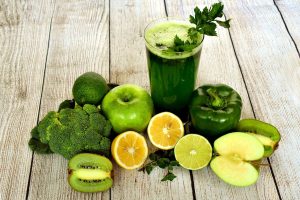
Transition to Veganism: Resources and Support – Part II
In the first part of this article, we discussed the nature of veganism and some of the reasons why you might consider embracing the diet and lifestyle of a vegan. As you have seen, turning vegan can have multiple benefits for your physical and emotional health, outer appearance, saving the planet, and many more.
Therefore, what might still be stopping you? Well, many people have doubts and uncertainties at the beginning of their journey to veganism. We are going to explore some of these in the text below to help answer your questions and address any concerns that you might have.
I Don’t Like Eating Plants. Can I Still Become a Vegan?
Yes, you can still definitely become a vegan. First of all, as we discussed in the previous part of this article, the market is flooded with numerous alternatives to animal products like meat, eggs, and dairy. Therefore, you can rest assured that you will not remain hungry.
Also, you can try various tips and tricks from children’s cuisine. For instance, you can puree your vegetables. Or you can substitute traditional ingredients in your favourite dishes for vegan-friendly components. Say, you have a shepherd’s pie, which is a traditional dish in this part of the world. You can substitute mince for lentils and keep the meal’s outlook the same. This will trick your brain into eating it more easily. In any case, however, you should be eating vegetables regardless of whether you are a vegan or not. Greens are an essential part of any human being’s diet, so even if you are a meat lover, you should be consuming them regularly.
Being Vegan Is Too Expensive
It is actually not. Veganism can cost just as much as any other diet. What makes a diet expensive are mostly processed foods. Therefore, you should avoid them. To eat vegan, you primarily need:
- Fruit
- Vegetables
- Various nuts
- Lentils
- Beans, etc.
Your meals do not need to be fancy unless you have the means to afford it.
Will I Be Getting Enough Protein?
This is another very common concern of people who are thinking about going vegan. It might seem that by taking meat, eggs, and dairy out of your diet you are actually removing the majority of your protein sources, but it is not like that at all. A plant-based diet has sufficient protein sources. Some of them include beans, nuts, soy products, chickpeas, seeds, and so on.
Changes in Weight and High Carb Consumption
People often worry about their weight when it comes to veganism. Some are concerned that too many salads and vegetables will cause their weight to drop. In contrast, others believe that a vegan diet contains too many carbs, which can result in weight gain. Such concerns are only valid if you are looking at an imbalanced nutritional regimen.
Truth is, you do not have to eat only salads if you go vegan. Also, you can get plenty of healthy carbs from wholegrain foods, beans, and other sources like sweet potatoes, for example. The important thing is to have varied meals with rich nutritional value, which is entirely possible if you are a vegan.
Another common concern is the intake of Vitamin B12 and calcium. The former is easily attainable as a supplement that can be bought at your local pharmacy. The latter can easily be found in fortified plant milk, which can be just as rich in calcium as cow milk.
Last but not least, veganism is not as restrictive as typically depicted. You can still enjoy your favourite non-animal derived foods and have a healthy, happy lifestyle. Vegan food can be truly delicious and pretty simple to cook.
Peer Pressure
The peer pressure concern is as valid in the case of adopting veganism as in any other decision area. To begin with, what if your partner is an adamant meat lover and does not support your vegan diet. Well, as in any other area of human life, communication is key. You can simply explain as many times as it takes why it is important to you to adopt a vegan diet.
Also, you can be quite resourceful in finding workarounds when eating and cooking at home. For instance, you can have joint cooking sessions, where each of you prepares their own food. Or you can have an agreement with your partner that they do not eat non-vegan food at home, but they can do so when they go out.
There are many solutions in case your significant other does not share your desire for a meatless lifestyle. In general, there is no need to worry about the stability of your relationship. After all, people fall in love and stay in love based on many reasons other than their affection for similar foods. If you look around, you will see couples where partners have opposing political and religious views, practise different hobbies, indulge in dissimilar activities, and so on.
Social Gatherings
Being a vegan does not mean you should exclude yourself from social gatherings. As we reiterated many times, nowadays there are many affordable and easily accessible dining solutions for anyone who avoids animal product consumption. You can simply pick places that cater to diverse tastes and preferences. Also, whenever you are invited to anyone’s home, just warn them in advance about your diet. Most people are happy to satisfy the tastes of their guests, so most likely you being a vegan will not be a problem.

